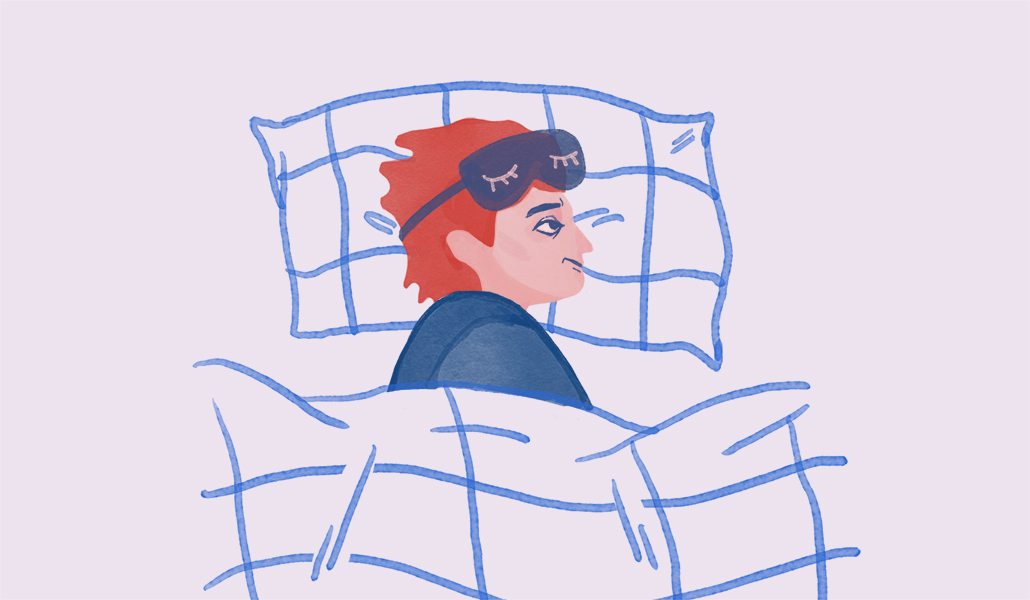Why we can’t sleep – and what it means for work

If you’re reading this, chances are you didn’t get enough shut-eye last night.
According to a study by the Sleep Foundation, Sunday is the hardest night of the week for people to fall asleep, with 8 in 10 adults tossing and turning ahead of the Monday grind. More than half (54%) of 1,250 people surveyed in the U.S. blamed stress and anxiety for this state of restlessness.
Of course, most of us have experienced some degree of dread about work as we hit the sack, particularly as the weekend winds down — but why is it affecting so many of us now, and what does it mean for our job performance and, ultimately, the output and competitiveness of our employers?
“Between Covid, wars and now the economy, the general temperature of our society has increased,” said Alex Dimitriu, founder of Menlo Park Psychiatry and Sleep Medicine in California and a Sleep Foundation medical review board member. “Things have gotten more stressful and unsettled, and people tend to think more when they are quiet — i.e., before bed.”
To know why you can’t sleep, you need to understand the brain, stressed corporate consultant Jayne Gardner. “When the feeling brain, called our limbic system, gets too crammed packed with feelings, emotions we have not given ourselves time to process, the limbic brain overpowers our thinking brain,” she explained. “When we are emotional, we can’t think, we can’t relax, and we can’t sleep — we are too roused up to rest.”
And our lack of rest may well be affecting our performance at work, and costing employers billions.
According to a study by RAND Europe and Swiss pharmaceutical company Idorsia whose release was timed to World Sleep Day (Mar. 17), employers supporting their people to sleep better and reduce insomnia could save the U.K. economy as much as $41.5 billion per year. The study also found that those affected by chronic sleeplessness would be willing to trade as much as 14% of their household income just to get a decent night’s rest.
Nicole Detling, mental performance coach at ReliaQuest, a Tampa-based cybersecurity firm, believes tired employees can be devastating to a company’s health. “The research is pretty clear: an overtired, stressed-out workforce will have a massive, negative impact on businesses, let alone [employees’] physical health, mental health and overall well-being,” she said. ReliaQuest believes rested employees are so important that it offers them a guide, “How to Sleep Like a Champion.”
What can business leaders do to ensure their people are rested and ready to perform, regardless of what’s happening in the world around them?
Detling said first, employers should promote policies like flexible work that support healthy sleep habits. She proposed encouraging employees to take breaks and “micro-naps” during the workday when needed. And simple awareness of the issue goes a long way. “At the very least, talking about the importance of sleep and providing a session that helps educate employees on sleep is a great start,” she said.
Andrew Robinson, head of people at Highwire PR, which works with clients like Intel and GitLab, suggested that to mitigate employee anxiety, management should lead with empathy and “soften the edge” when communicating business demands. It is also key to have prioritization conversations that give employees the clarity, certainty and confidence necessary to disconnect from work after hours, he added.
Businesses might also institute programs that empower employees to focus on their well-being and prioritize rest and recovery, according to Robinson. For example, Highwire encourages employees to unplug at 3 p.m. every Friday for “Empower Hours” and shuts down the business altogether twice a year for employees to disconnect. “We’ve found that there is no better break than when we all take one together,” Robinson said. To encourage deep-thinking time during work hours, the firm hosts a daily, companywide “high-focus hour” and bi-monthly “Focus Fridays,” a no-meeting zone.
Like many companies, Highwire also offers well-being benefits that cover services that contribute to employees’ wellness, including gym memberships, massages, and subscriptions to apps like Headspace and Calm.
Napping during the workday is a trend that’s also caught fire in recent years, with no less authority than McKinsey giving the nod to “nap pods” at the office. Google and Zappos are among the companies to invest in these high-tech — if bizarre looking — solutions.
As for what the individual can do? Dimitriu advises those experiencing dread when it’s time for bed to embrace rather than run from it. He proposed doing any number of activities — long before turning in — to head off restlessness, including meditation, journaling and scheduling “worry time,” where one journals and problem-solves about their concerns. Setting clear boundaries around work versus free time is also essential.
“Sleep,” as Dimitriu put it, “is your superpower.”

